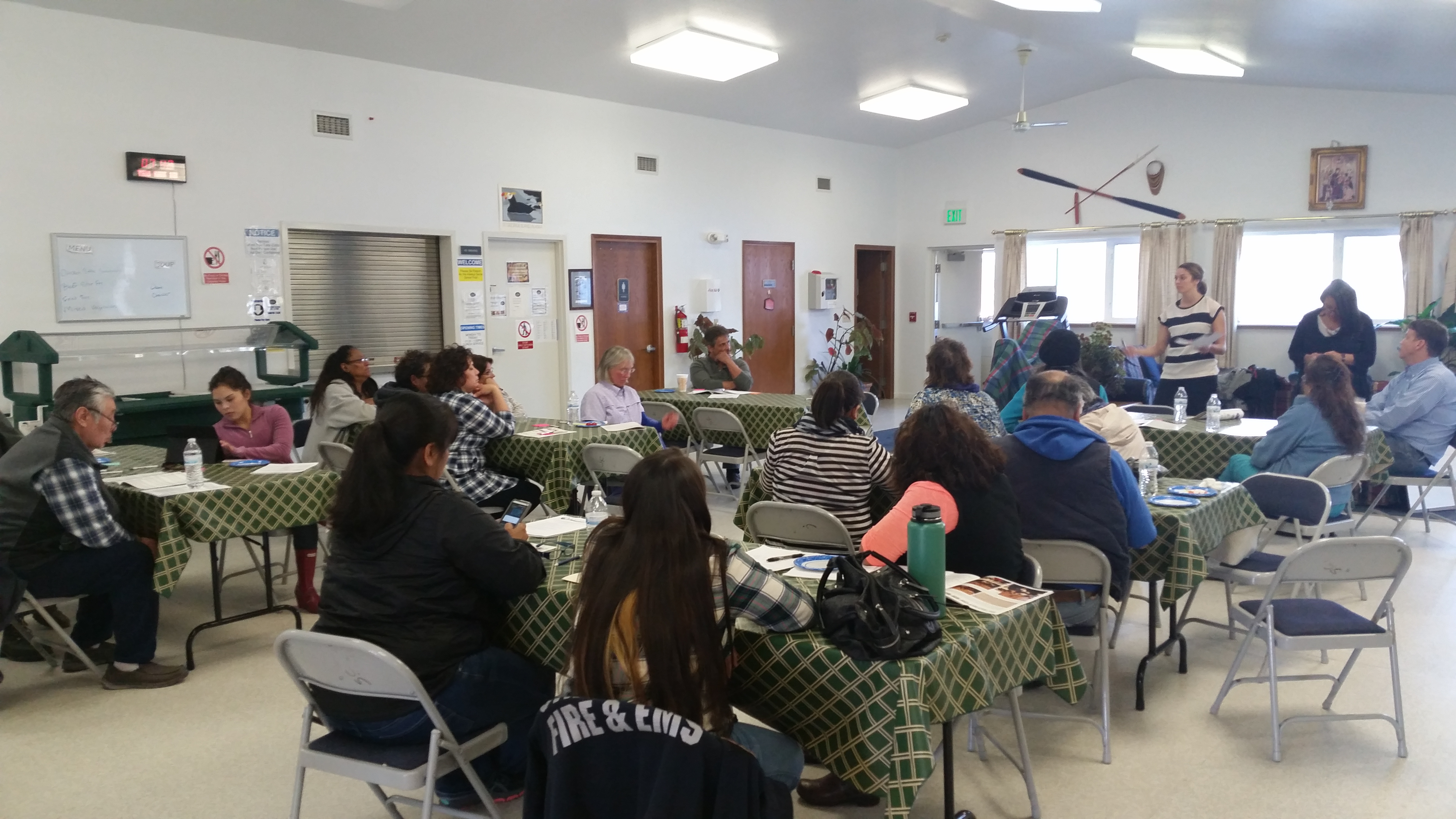What resources are available to people when they near they end of their lives? That was the subject of a community meeting last week between the Qawalangin tribe and the Aleutian Pribalof Islands Association.

the Qawalangin tribe and the Aleutian Pribalof Islands
Association. (Photo by Zoe Sobel, KUCB – Unalaska)
Verla Robinson is 76 years old and she’s thinking about her future.
“When it comes time for me to die, I’m going to take a hike because I’m not going to leave my home to die just because for the last 20 years people have been dragging their feet about everything or passing the buck,” Robinson said.
She means literally taking a hike. That’s because in Unalaska, there are not many services for people as they age. There’s the Father Ismail Gromoff senior center, which offers housing, lunches, and shuttle services, but if someone needs more care, the burden is on their family to provide it. And if that becomes too much, then the next stop is assisted living in Anchorage.
Robinson said she’d like to see an assisted living facility on the island with a full time registered nurse and a pool of people who can give daily care.
“Not everybody needs real drastic physical care, you know. I’m 76 years old,” Robinson said. “I still do everything. You know, I don’t need someone to take care of me. I do that. It takes me a little longer, but so what I’m older. You know there’s going to be a time where I may need it or may not, but there are people who direly need it.”
APIA has a program for Personal Care Attendants or PCA’s who can relieve family and care for qualified elders on Medicaid.
But at last week’s meeting, everyone agreed the problem is finding help. Even with the PCA program, the cost of living on the island is too high and the pay – estimated to be around $14 to $16 an hour – would not be enough to attract people to the job. Plus, there’s not the infrastructure to house more people.
Robinson says Unalaska should have a facility that serves all the villages – False Pass, Akutan, King Salmon, and Nikolski, all the way to the end of the Aleutian chain.
“It’s not just the people of this community. I’m sure that people in other villages would rather come here than anchorage. That’s a foreign country as far as I’m concerned.”
Robinson has lived all of her life on the island – save a brief stint away to attend college, to get married and to have kids. And she wants to stay here.
“I am not here because I’m forced – I’m here because I love it here. This is where I was born,” Robinson said. “This is where I want to die.”
Zoe Sobel is a reporter with Alaska's Energy Desk based in Unalaska. As a high schooler in Portland, Maine, Zoë Sobel got her first taste of public radio at NPR’s easternmost station. From there, she moved to Boston where she studied at Wellesley College and worked at WBUR, covering sports for Only A Game and the trial of convicted Boston Marathon bomber Dzhokhar Tsarnaev.




